What on earth are you doing?
Coinciding with International Day of Peace on 21 September, World Clean-up Day is not solely about cleaning up trash. It is also about raising global awareness and implementing lasting changes to end the global waste epidemic.
Justicia Shipena
While cleaning up waste and the beautification of the environment are important and essential practices, unless there is systemic change that leads to the reduction of waste-generation, these efforts will be futile.
Cleaning activities must be supported by concrete steps that lead to a drastic reduction in the quantum of waste generated, and we need to ultimately change public mindsets to ensure that the need for cleaning becomes a thing of the past.
Let’s Do It World (LDIW) is a global organisation that unites 157 countries.
World Clean-up Day is one of the biggest events organised by LDIW.
Each country has a leader who works to mobilise those in their country. World Clean-up Day is celebrated on 21 September.
With days to go, The Zone looked at how young people can become actively involved in terms of transforming their communities, in order to have zero waste.
Since May last year, Let’s Do It Namibia has been involved in cleaning towns within the country. This year the organisation aims to raise enough funds and get enough people involved to be able to clean in six selected regions, as part of World Clean-up Day.
Speaking to The Zone, Tanswell Rooinasie, Namibia’s LDIW country leader, said the aim of any clean-up campaign is to get as many people involved as possible. However, this can be challenging.
“Our approach is to reach a small, core group from the community before the event, especially young people through social media; hence, working in small teams, having group lunches or snacks as a break and taking pictures can all spur the activity and encourage others to join,” he said.
Rooinasie said after World Clean-up Day the organisation aims to keep gathering people to clean certain targeted areas.
During the course of this year, Let’s Do It Namibia conducted six clean-up operations in various regions, in order to raise World Clean-up Day awareness. Additionally, they promote the TrashOut app, which allows people to map waste-points.
“This makes targeted interventions easier and we would like to continue to inform people that the collectables are resources too. This is why even during the clean-up, the recyclables are collected separately,” he said.
Rooinasie said each clean-up operation gives a fresh opportunity to secure more volunteers, thereby enhancing a culture which identifies and trains young people for future environmental roles.
He emphasised that volunteering not only highlights your role as a great citizen, but also gives a sense of belonging and purpose.
He said volunteers can actually make a difference and stand up for something important - creating a safer and cleaner environment.
Let’s Do It Namibia partners with other organisations with similar aims, including Zero Waste Namibia.
“We also work with government entities, especially the ministry of environment and tourism and the City of Windhoek,” he said.
He further said sustaining what we have now and hopefully creating an even cleaner, waste-free country is what we all crave.
He urged young people to be the change they want to see and create a better life for generations to come.
Recycling Forum Namibia
Established in 2011, Recycling Forum Namibia (RNF) is a non-profit organisation that formally address the three Rs, namely reuse, reduce and recycle.
RNF is involved in the Schools Recycling Competition (SRC), which was initially launched in early 2009 with 10 schools.
It is now celebrating its 10th year and the statistics of the SRC are indicative of the increased awareness of the importance of the three Rs and the growing environmental awareness overall.
In 2011, with 26 schools involved, the winning school logged 44 kilograms of waste per learner, which steadily climbed to 97 kilograms per learner in 2015.
RNF coordinator Anita Witt said the efforts of the schools during the 2018/19 competition was indeed commendable, given that the winning school, Môreson, collected 219 kilograms of waste per learner, closely followed by Dagbreek with 212 kilograms per learner and All Nations with 92 kilograms per learner.
“What makes this achievement even more significant is that all three schools are relatively small, with around 120 to 150 learners each,” she said.
She said schools across the country can be vigorously involved in World Clean-up Day.
“So far we have 30 schools from all corners of the country that have registered to take part in the Pako Kids Magazine and Tourism Supporting Conversation (TOSCO Trust) before and after the challenge in support of national clean-up day,” she said.
According to Witt, the RNF is currently busy drafting a booklet that will help guide schools and communities on how to organise clean-up campaigns.
Witt said the winning schools should be encouraged to visit environmental centres in the country to help spark the light of innovation.
She called on parents to lead by example, as this will enable youth to do the right thing.
“We need to teach the youth to understand the three Rs and rethink tomorrow. For example, instead of buying four small bottles of water, you can buy one big one,” she said.
She urged people not use too much packaging material and refuse what they don’t need.
Dagbreek School are the current recycling competition champions after collecting 30 tons of recyclable material.
Witt said this does not only teach children the value of keeping their environment clean, but also how to be innovative.
Don’t let them go
Balloons are unique among all the man-made litter and are a form of litter that people purchase with the intent of releasing them into the environment.
Witt said whether this item is intentionally or accidentally released, it can end up hundreds of kilometres from where it was released, causing great harm to the environment.
She said people need to think about where a balloon will end up and what harm it may cause, once released.
“Many people are ignorant about this and we need to educate people about the destructive effects released balloons have on the planet,” she said.
Did you know?
Balloons can take up to four years to decompose and the balloon string can also cause environmental damage.
Pako Kids Magazine and Tourism Supporting Conversation (TOSCO Trust) before and after challenge: What you need to do…
To participate a school needs to have a minimum of 10 students of any age.
If the school has more than 50 learners who are willing to participate, it will need to create several groups. Each group must have a minimum 10 students and maximum 50 students.
The participating school will need to take 10 pictures in total: Three pictures before the clean-up challenge (to see how the area looked like before), three pictures during the challenge (with the kids cleaning up), three more pictures after the challenge ends (how the landscape looked after) and one picture showing the number of trash bags and the team.
Winners of the 2018/19 Schools Recycling Competition:
1. Môreson: 219.31 kilograms per learner. Prize money: N$10 000 sponsored by Namibia Breweries Limited (NBL) - a subsidiary of the Ohlthaver & List (O&L) Group.
2. Dagbreek School: 212.39 kilograms per learner. Prize money: N$5 000 sponsored by Collect-a-Can.
3. All Nations Christian School: 92.48 kilograms per learner. Prize money: N$2 500 sponsored by Plastic Packaging.
4. Combretum Trust: 11.78 kilograms per learner. Prize money: N$2 000 sponsored by Rent-A-Drum.
5. Pro-Ed Academy: 9.05 kilograms per learner. Prize money: N$1 000 sponsored by Rent-A-Drum.
Infographic:
157 countries
17 million volunteers
One day to clean up our planet
Most littered items
· Cigarette butts
· Glass bottles
· Food wrappers
· Plastic bottles
· Plastic bags
· Aluminium cans
· Straws
· Plastic takeout containers
· Plastic lids
· Foam containers
Which items to put in each bag during the clean-up day
Black plastic bag (non-recyclable)
· Clothing or shoes
· Organic waste
Yellow plastic bag (recyclable)
· Glass
· Plastic
· Cans
· Cardboard
· Paper
· Styrofoam
While cleaning up waste and the beautification of the environment are important and essential practices, unless there is systemic change that leads to the reduction of waste-generation, these efforts will be futile.
Cleaning activities must be supported by concrete steps that lead to a drastic reduction in the quantum of waste generated, and we need to ultimately change public mindsets to ensure that the need for cleaning becomes a thing of the past.
Let’s Do It World (LDIW) is a global organisation that unites 157 countries.
World Clean-up Day is one of the biggest events organised by LDIW.
Each country has a leader who works to mobilise those in their country. World Clean-up Day is celebrated on 21 September.
With days to go, The Zone looked at how young people can become actively involved in terms of transforming their communities, in order to have zero waste.
Since May last year, Let’s Do It Namibia has been involved in cleaning towns within the country. This year the organisation aims to raise enough funds and get enough people involved to be able to clean in six selected regions, as part of World Clean-up Day.
Speaking to The Zone, Tanswell Rooinasie, Namibia’s LDIW country leader, said the aim of any clean-up campaign is to get as many people involved as possible. However, this can be challenging.
“Our approach is to reach a small, core group from the community before the event, especially young people through social media; hence, working in small teams, having group lunches or snacks as a break and taking pictures can all spur the activity and encourage others to join,” he said.
Rooinasie said after World Clean-up Day the organisation aims to keep gathering people to clean certain targeted areas.
During the course of this year, Let’s Do It Namibia conducted six clean-up operations in various regions, in order to raise World Clean-up Day awareness. Additionally, they promote the TrashOut app, which allows people to map waste-points.
“This makes targeted interventions easier and we would like to continue to inform people that the collectables are resources too. This is why even during the clean-up, the recyclables are collected separately,” he said.
Rooinasie said each clean-up operation gives a fresh opportunity to secure more volunteers, thereby enhancing a culture which identifies and trains young people for future environmental roles.
He emphasised that volunteering not only highlights your role as a great citizen, but also gives a sense of belonging and purpose.
He said volunteers can actually make a difference and stand up for something important - creating a safer and cleaner environment.
Let’s Do It Namibia partners with other organisations with similar aims, including Zero Waste Namibia.
“We also work with government entities, especially the ministry of environment and tourism and the City of Windhoek,” he said.
He further said sustaining what we have now and hopefully creating an even cleaner, waste-free country is what we all crave.
He urged young people to be the change they want to see and create a better life for generations to come.
Recycling Forum Namibia
Established in 2011, Recycling Forum Namibia (RNF) is a non-profit organisation that formally address the three Rs, namely reuse, reduce and recycle.
RNF is involved in the Schools Recycling Competition (SRC), which was initially launched in early 2009 with 10 schools.
It is now celebrating its 10th year and the statistics of the SRC are indicative of the increased awareness of the importance of the three Rs and the growing environmental awareness overall.
In 2011, with 26 schools involved, the winning school logged 44 kilograms of waste per learner, which steadily climbed to 97 kilograms per learner in 2015.
RNF coordinator Anita Witt said the efforts of the schools during the 2018/19 competition was indeed commendable, given that the winning school, Môreson, collected 219 kilograms of waste per learner, closely followed by Dagbreek with 212 kilograms per learner and All Nations with 92 kilograms per learner.
“What makes this achievement even more significant is that all three schools are relatively small, with around 120 to 150 learners each,” she said.
She said schools across the country can be vigorously involved in World Clean-up Day.
“So far we have 30 schools from all corners of the country that have registered to take part in the Pako Kids Magazine and Tourism Supporting Conversation (TOSCO Trust) before and after the challenge in support of national clean-up day,” she said.
According to Witt, the RNF is currently busy drafting a booklet that will help guide schools and communities on how to organise clean-up campaigns.
Witt said the winning schools should be encouraged to visit environmental centres in the country to help spark the light of innovation.
She called on parents to lead by example, as this will enable youth to do the right thing.
“We need to teach the youth to understand the three Rs and rethink tomorrow. For example, instead of buying four small bottles of water, you can buy one big one,” she said.
She urged people not use too much packaging material and refuse what they don’t need.
Dagbreek School are the current recycling competition champions after collecting 30 tons of recyclable material.
Witt said this does not only teach children the value of keeping their environment clean, but also how to be innovative.
Don’t let them go
Balloons are unique among all the man-made litter and are a form of litter that people purchase with the intent of releasing them into the environment.
Witt said whether this item is intentionally or accidentally released, it can end up hundreds of kilometres from where it was released, causing great harm to the environment.
She said people need to think about where a balloon will end up and what harm it may cause, once released.
“Many people are ignorant about this and we need to educate people about the destructive effects released balloons have on the planet,” she said.
Did you know?
Balloons can take up to four years to decompose and the balloon string can also cause environmental damage.
Pako Kids Magazine and Tourism Supporting Conversation (TOSCO Trust) before and after challenge: What you need to do…
To participate a school needs to have a minimum of 10 students of any age.
If the school has more than 50 learners who are willing to participate, it will need to create several groups. Each group must have a minimum 10 students and maximum 50 students.
The participating school will need to take 10 pictures in total: Three pictures before the clean-up challenge (to see how the area looked like before), three pictures during the challenge (with the kids cleaning up), three more pictures after the challenge ends (how the landscape looked after) and one picture showing the number of trash bags and the team.
Winners of the 2018/19 Schools Recycling Competition:
1. Môreson: 219.31 kilograms per learner. Prize money: N$10 000 sponsored by Namibia Breweries Limited (NBL) - a subsidiary of the Ohlthaver & List (O&L) Group.
2. Dagbreek School: 212.39 kilograms per learner. Prize money: N$5 000 sponsored by Collect-a-Can.
3. All Nations Christian School: 92.48 kilograms per learner. Prize money: N$2 500 sponsored by Plastic Packaging.
4. Combretum Trust: 11.78 kilograms per learner. Prize money: N$2 000 sponsored by Rent-A-Drum.
5. Pro-Ed Academy: 9.05 kilograms per learner. Prize money: N$1 000 sponsored by Rent-A-Drum.
Infographic:
157 countries
17 million volunteers
One day to clean up our planet
Most littered items
· Cigarette butts
· Glass bottles
· Food wrappers
· Plastic bottles
· Plastic bags
· Aluminium cans
· Straws
· Plastic takeout containers
· Plastic lids
· Foam containers
Which items to put in each bag during the clean-up day
Black plastic bag (non-recyclable)
· Clothing or shoes
· Organic waste
Yellow plastic bag (recyclable)
· Glass
· Plastic
· Cans
· Cardboard
· Paper
· Styrofoam



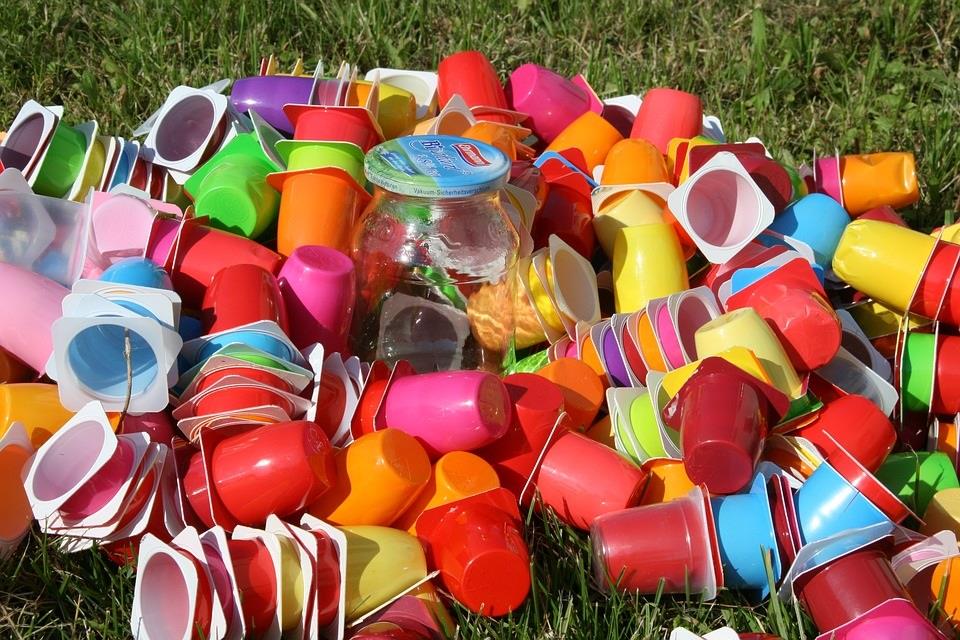
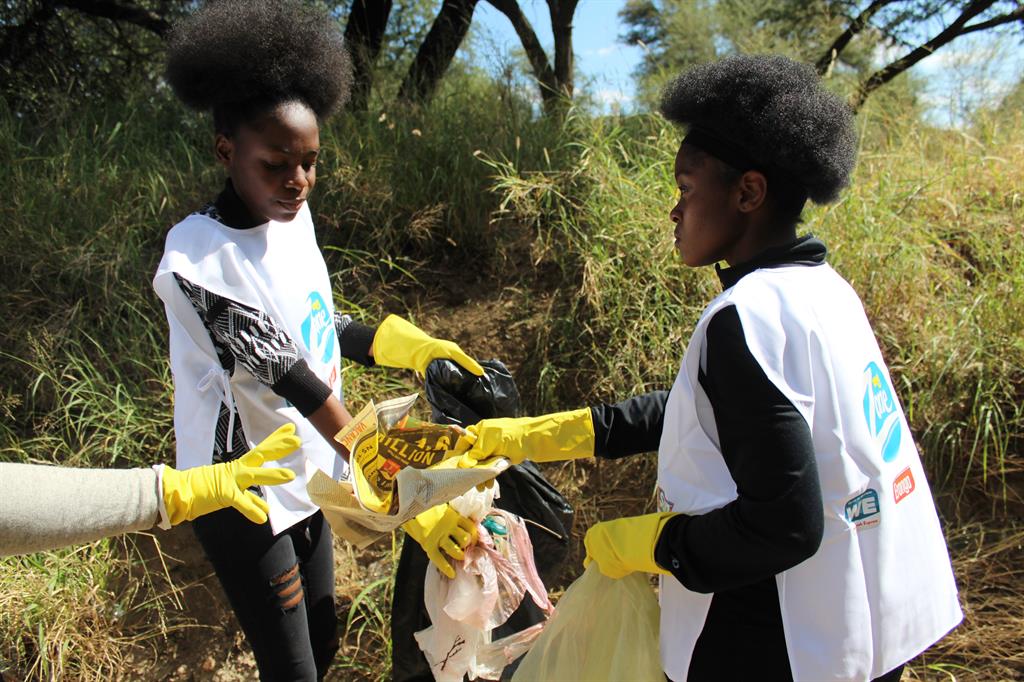
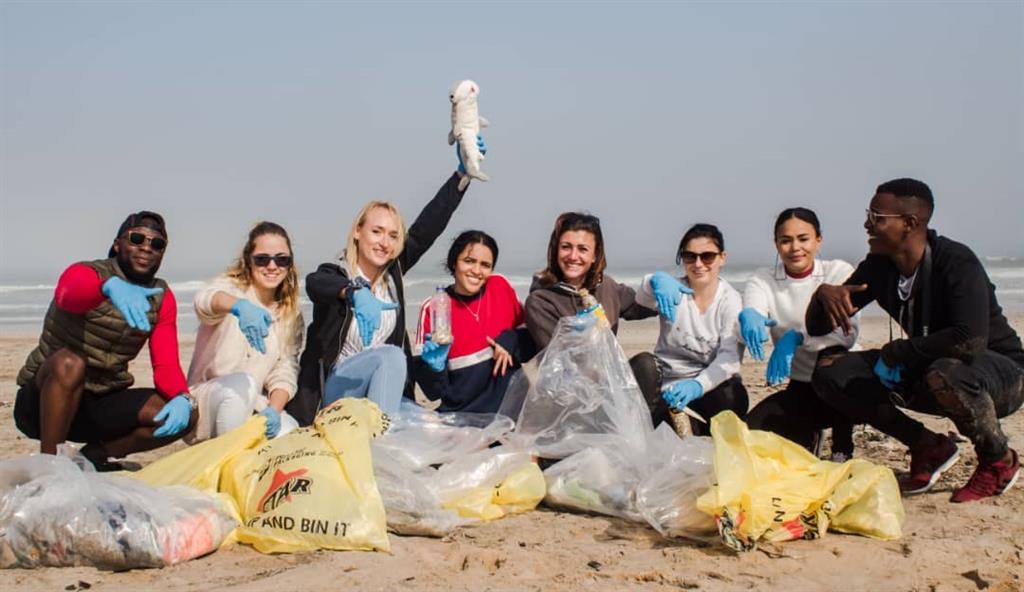
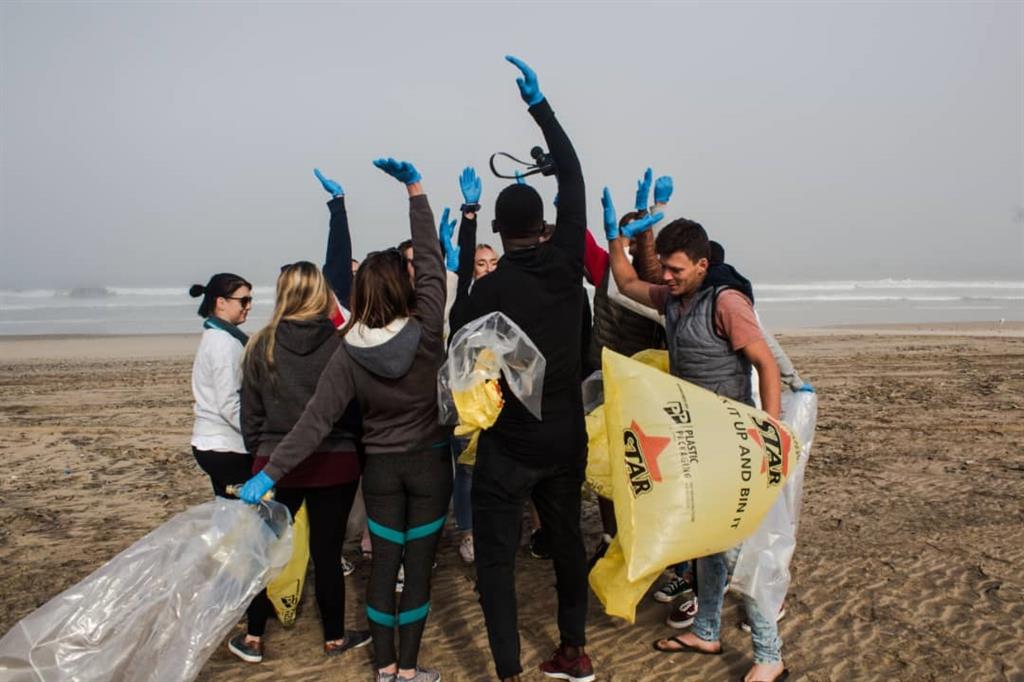
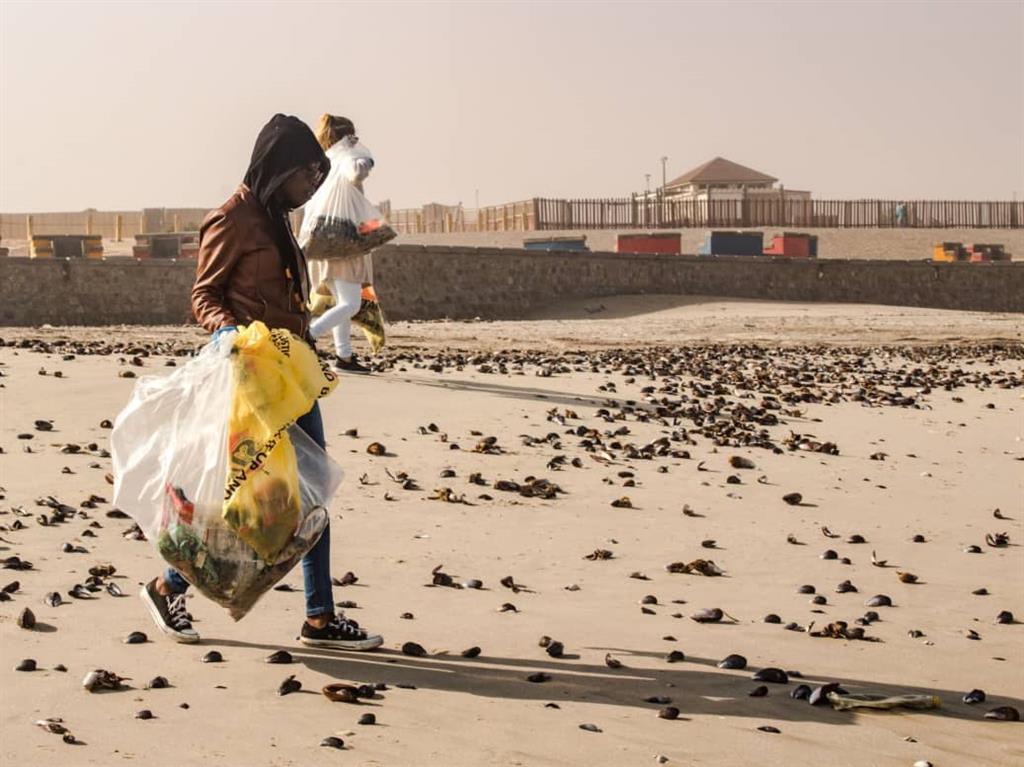
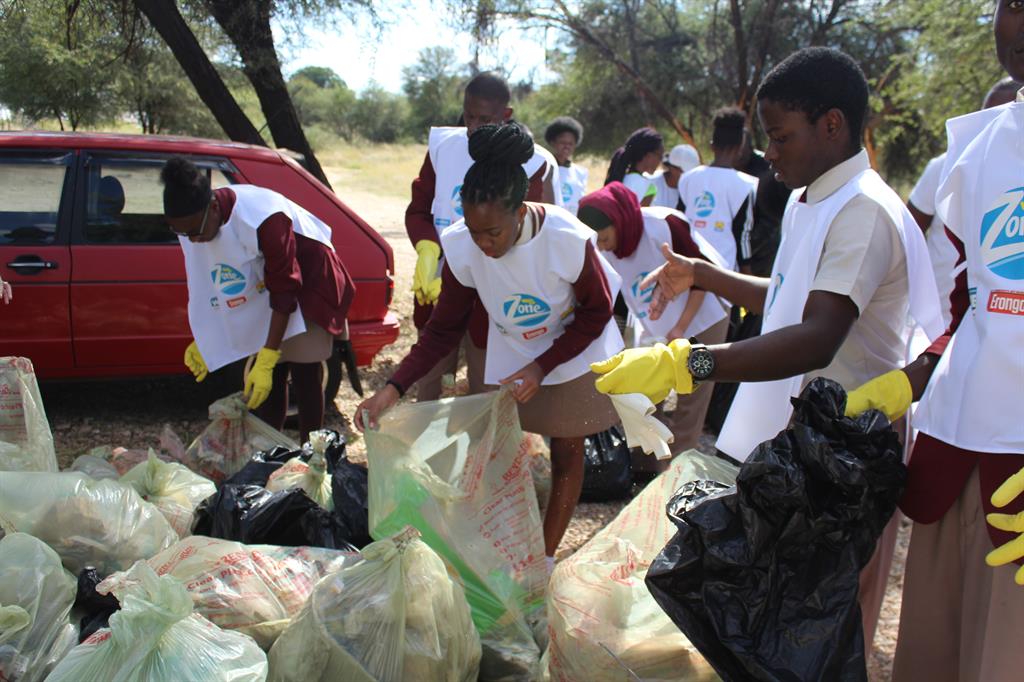
Comments
Namibian Sun
No comments have been left on this article